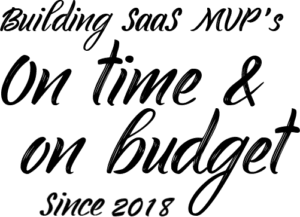Phil's love for coding started at a young age. He talks about teaching himself how to code from reading books and documenting what he learned in his blog. It's from his blog, where a friend hired him to develop software to manage direct sales. As was his norm, he documented the project on his blog, which went viral, ranking number one on Google.
Many people reached out, wanting him to build them similar software for their businesses. Listen to the podcast to learn how he managed the high demand, turned the software into SaaS, and grew the company before finally selling it.
According to Phil, software can improve lives, boost efficiency, and help entrepreneurs solve real business problems. However, he quickly mentions that building software is complex and shouldn't be your first business. Find out why from the podcast.
How do Phil and his team identify their ideal customer? In his quest to ensure their potential customers have a chance at succeeding, the team must believe in their (potential customers) ideas. Phil says they prefer working with B2B customers to their B2C counterparts. Find out why from the podcast. Phil also explains how he works with people with a B2B idea but lacks industry expertise.
Before customers commit to developing a full product, Phil says the team runs a strategy and design session, often to a remote design sprint. They test the prototype like actual users, interview the real user, receive feedback, and check whether the product is solving the intended problem. Get more insights about this phase from the podcast.
When building software products, Phil gives his customers three deliverables they can use to decide whether or not they want to work with his company. Learn about it from the podcast. Phil says they only work with companies they believe in. That way, they can work cordially on the product to guarantee success. Further, the team feels good when their customers get a good product.
After onboarding a customer, Phil says they work closely with them to help them know how to determine when developers are doing an excellent job. For example, they teach customers about code review and GitHub, among other things you can learn about from the podcast. Phil believes customers don't need a technical background to develop a product. If you are an aspiring developer, Phil talks about the essential tools you should have.
Phil built Dev Stats because the products on the market couldn't meet their needs. He also needed a way to ensure they were doing an excellent job for their customers while ensuring that his developers were improving. Phil used his product to solve their internal problems before recommending it to other companies.
He mentions an incident where a customer they were working for approached them, wondering why their team seemed more productive. How did the customer gauge the productivity of Phil's team? Find out from the podcast.
As a developer, you want to avoid doing multiple things at once. Phil terms it as one of a developer's biggest mistakes and cautions his team against it. What strategies do Phil and his team use to help customers achieve product-market fit? Phil believes that product market fit is when people keep returning to your product and using it weekly. That is the metric he uses to track all his customers. Still, he mentions that some products don't require people to come back weekly. Phil funds his SaaS company with cash flow from his consulting firm.



